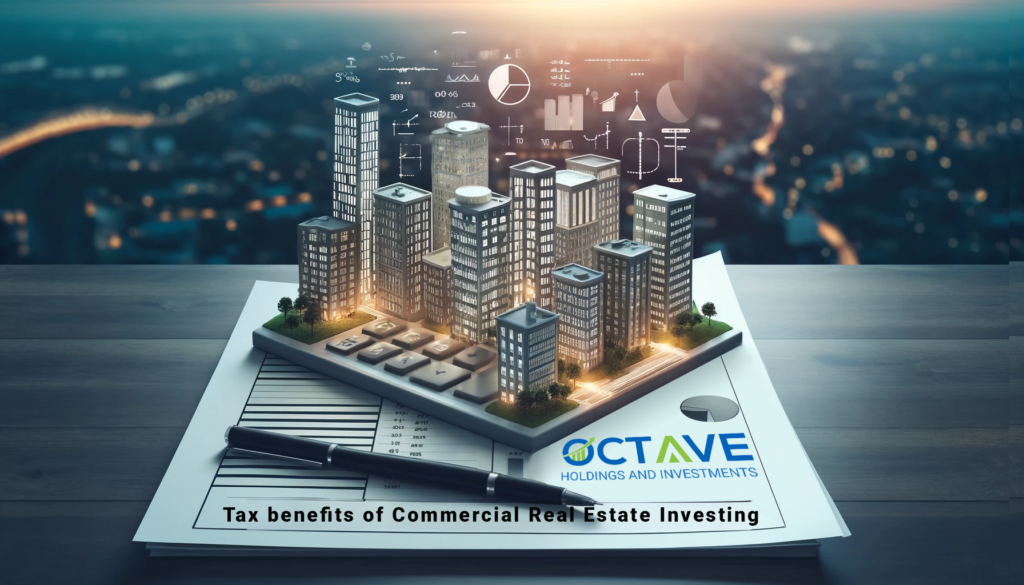Are you considering diversifying your investment portfolio? Have you thought about the potential tax advantages of investing in commercial real estate? The world of commercial real estate offers numerous opportunities for investors to not only generate passive income but also enjoy various tax benefits. In this blog post, we’ll explore some of the key tax advantages that come with investing in commercial real estate.
Depreciation Deductions: One of the most significant tax benefits of owning commercial real estate is depreciation deductions. The tax code allows property owners to deduct a portion of the property’s value each year as a depreciation expense, reducing taxable income and therefore your tax liability. An even more effective way to take advantage of depreciation deductions is through Cost Segregation.
Cost Segregation: Cost segregation is a tax strategy that involves breaking down the components of a property to determine the depreciable life of each one, including those that can be depreciated on an accelerated basis (with a shorter depreciable life than the standard 39 years). Accelerating depreciation provides investors with a time value of money benefit by reducing taxable income and taxes early in the life cycle of the investment property.
Learn more about Cost Segregation.
1031 Exchange: Investors looking to defer capital gains taxes should explore the option of a 1031 exchange. This provision allows investors to sell a property and reinvest the proceeds into another like-kind property without recognizing the capital gains. Investors can defer paying capital gains taxes indefinitely by continuously rolling over investments through 1031 exchanges.
Tax Credits: Certain commercial real estate investments may qualify for tax credits, further enhancing their appeal to investors. For example, investments in historic rehabilitation projects or renewable energy developments may be eligible for tax credits that can reduce the investor’s tax liability dollar for dollar.
Investing in commercial real estate offers a myriad of tax benefits that can significantly enhance your investment returns. From depreciation deductions to 1031 exchanges and Opportunity Zone incentives, there are various strategies available to investors to minimize their tax liability and maximize their profits. With careful planning and strategic execution, commercial real estate can be a tax-efficient and lucrative investment vehicle for investors of all sizes.
However, as an investor, it’s crucial to consult with a tax professional or financial advisor to ensure that you fully understand the tax implications of your investments and remain compliant with relevant tax laws and regulations.
THE TAX CONSEQUENCES OF INVESTMENTS IN REAL ESTATE ARE COMPLEX. CERTAIN TAX CONSEQUENCES WILL VARY FROM PERSON TO PERSON DEPENDING ON THE PERSON’S PARTICULAR CIRCUMSTANCES. ACCORDINGLY, YOU SHOULD CONSULT YOUR OWN ADVISORS REGARDING ALL OF THE FEDERAL, STATE, LOCAL, AND FOREIGN TAX AND REGULATORY CONSEQUENCES RELATING TO AN INVESTMENT IN REAL ESTATE BASED ON YOUR SPECIFIC CIRCUMSTANCES. THIS BLOG IS NOT INTENDED TO PROVIDE, NOR ARE WE PROVIDING ANY TAX ADVICE.






